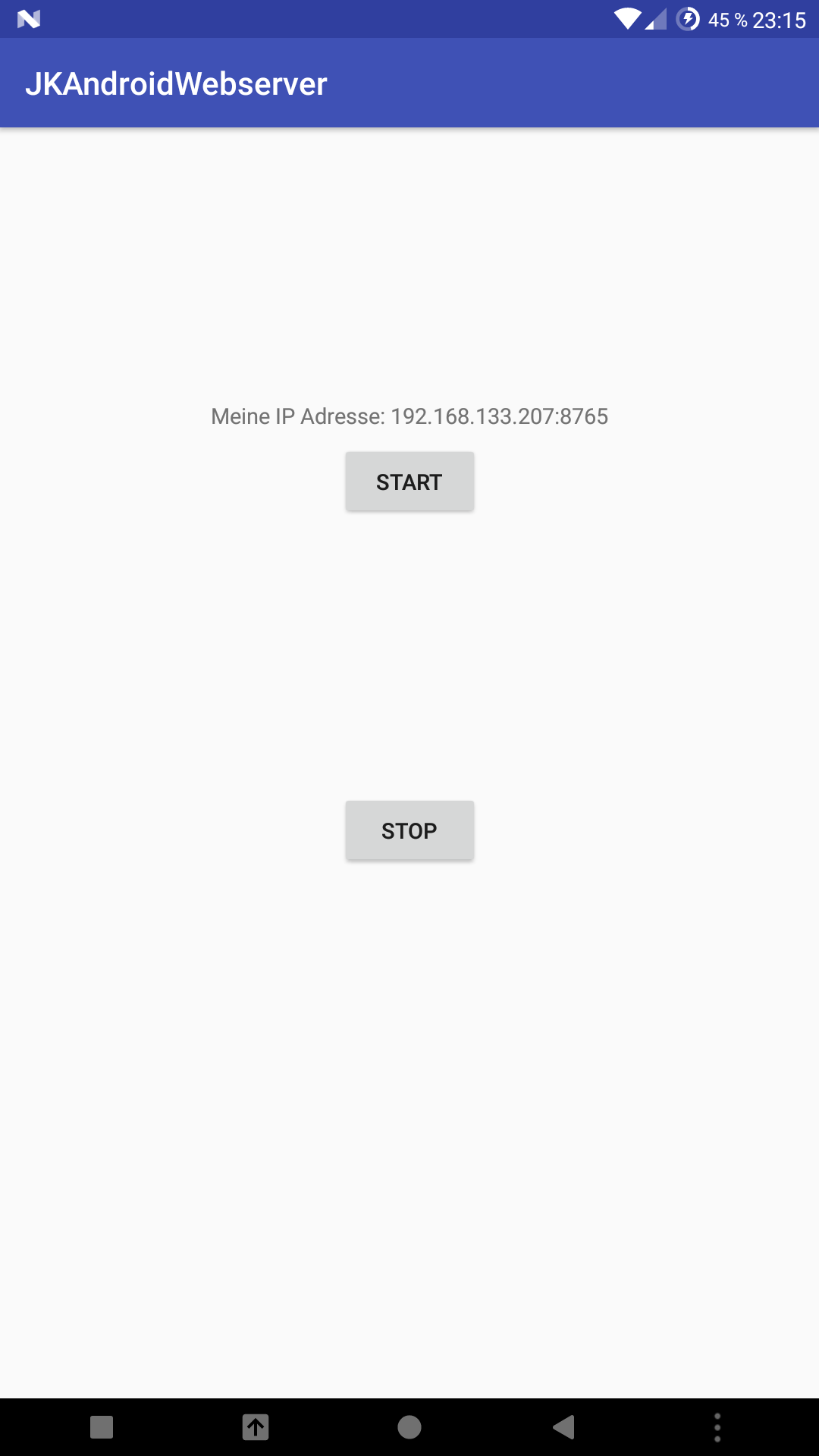How to run a WebServer on Android
Posted on July 27, 2017 • 2 minutes • 299 words
Table of contents
So i have an old Samsung Galaxy S2. And i was thinking about things i could do with it. And i thought, maybe i can try to create a litte home automation server on it. First thing i was looking for was a way to run a WebServer on Android. For this a job i used the library NanoHttpd and i want to explain how you can use it too.
1) Setup
Build.gradle
dependencies {
compile 'org.nanohttpd:nanohttpd:2.3.1'
}
Add the library to your build.gradle file.
AndroidManifest.xml
<uses-permission android:name="android.permission.INTERNET"/>
You need the internet permission to host the server
2) Usage
Extend the NanoHTTPD class
public class MyHTTPD extends NanoHTTPD {
public static final int PORT = 8765;
public MyHTTPD() throws IOException {
super(PORT);
}
@Override
public Response serve(IHTTPSession session) {
String uri = session.getUri();
if (uri.equals("/hello")) {
String response = "HelloWorld";
return newFixedLengthResponse(response);
}
return null;
}
}
You can choose the network port in the constructor. Override the serve method to get the request and to create the response.
Return a file
@Override
public Response serve(IHTTPSession session) {
String uri = session.getUri();
if (uri.equals("/hello")) {
FileInputStream fis = new FileInputStream(YOUR_FILE);
return newChunkedResponse(Response.Status.OK, MIME-Type, fis);
}
return null;
}
If you want to return a file, you have to generate a file input stream and set the MIME-Type of your file like “audio/mpeg”.
Start/Stop the server
Create a object of your server class and use the start/stop methods.
MyHTTPD server = new MyHTTPD();
server.start();
server.stop();
Example App
I created to small example app for this. It shows the ip and the server port of your device and you can start/stop the server with the buttons. You can connect to your device ip:port/hello in your browser and it will return “Hello World”. You can find the project on my Github page


